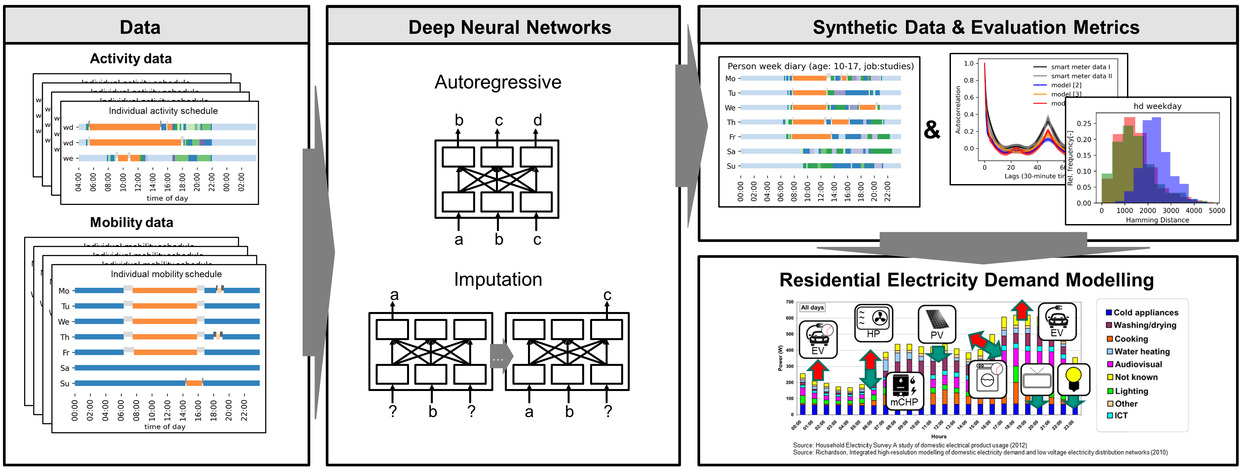Master Thesis
- Forschungsthema:Residential Energy Demand Modelling - Building a GPT to better describe household behavior in energy system models
- Typ:Master thesis
- Datum:As soon as possible
- Betreuung:
- Zusatzfeld:
Residential Energy Demand Modelling - Building a GPT to better describe household behavior in energy system models

Motivation
In Germany, residential buildings are responsible for around 30% of the final energy demand and greenhouse gas emissions. Consequently, the achievement of the climate targets in the residential building sector is a decisive factor for the success of the energy transition. Energy is needed in households in the form of heat and electricity. Due to the future electrification of the mobility and heating sector, it can be assumed that the demand for electricity in the residential building sector will continue to rise. In order to better understand residential energy demand, it is necessary to better understand the underlying household behavior that defines energy service demand.
Framework
In previous studies, Markov chains in various forms are mainly used to describe the behavior of the residents. Due to the Markov property, these models are only able to describe the real behavior of the residents to a limited extent. Deep neural networks in combination with large amounts of data are on everyone's lips due to recent breakthroughs in the field of speech generation (ChatGPT). We have already shown in 2020 that similar model structures also achieve promising results in the field of behavior modeling (see Link & Link).
Objective
The task of this thesis is the further development of the methodology described in the links above, with the aim of being able to depict the occupant behavior in energy system models in an even more differentiated way. In a first step, various (already available) large data sets that describe the behavior of households are to be evaluated and synchronized. In a second step, the data sets are to be visualized and metrics are to be derived that describe the stochastics in the residents' behavior. Finally, synthetic datasets on resident behavior are generated with the help of deep neural networks.
Previous knowledge:
The master's thesis can be started immediately and should be completed within 6 months (+ maybe 2 weeks of preparation). I look forward to receiving your applications (email with short motivation plus Bachelor/Master grades). After the application, I will arrange a meeting to get to know each other via teams or here at KIT-IIP.
I am looking forward to intrinsically motivated candidates with a high level of motivation and great interest in shaping the future of our energy system using data driven machine learning methods.
Max Kleinebrahm
E-Mail: max.kleinebrahm∂kit.edu
